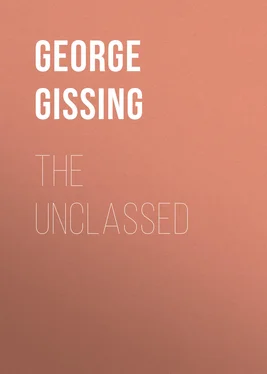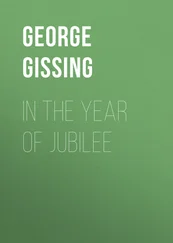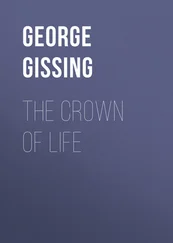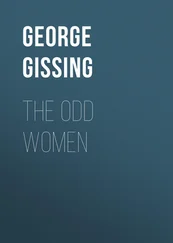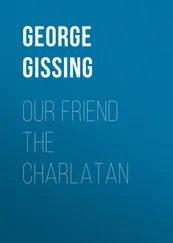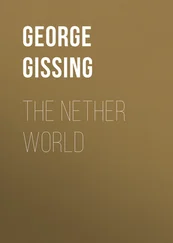George Gissing - The Unclassed
Здесь есть возможность читать онлайн «George Gissing - The Unclassed» — ознакомительный отрывок электронной книги совершенно бесплатно, а после прочтения отрывка купить полную версию. В некоторых случаях можно слушать аудио, скачать через торрент в формате fb2 и присутствует краткое содержание. Жанр: foreign_prose, literature_19, foreign_antique, на английском языке. Описание произведения, (предисловие) а так же отзывы посетителей доступны на портале библиотеки ЛибКат.
- Название:The Unclassed
- Автор:
- Жанр:
- Год:неизвестен
- ISBN:нет данных
- Рейтинг книги:4 / 5. Голосов: 1
-
Избранное:Добавить в избранное
- Отзывы:
-
Ваша оценка:
- 80
- 1
- 2
- 3
- 4
- 5
The Unclassed: краткое содержание, описание и аннотация
Предлагаем к чтению аннотацию, описание, краткое содержание или предисловие (зависит от того, что написал сам автор книги «The Unclassed»). Если вы не нашли необходимую информацию о книге — напишите в комментариях, мы постараемся отыскать её.
The Unclassed — читать онлайн ознакомительный отрывок
Ниже представлен текст книги, разбитый по страницам. Система сохранения места последней прочитанной страницы, позволяет с удобством читать онлайн бесплатно книгу «The Unclassed», без необходимости каждый раз заново искать на чём Вы остановились. Поставьте закладку, и сможете в любой момент перейти на страницу, на которой закончили чтение.
Интервал:
Закладка:
"What have you' been doing with yourself this fine day?" Waymark asked, as they sat down to table.
"I always spend Sunday afternoon with a cousin of mine," replied Julian, with the unhesitating frankness which was natural to him.
"Male or female?"
"Female." There was a touch of colour on his face as he met the other's eye, and he continued rather quickly. "We lived together always as children, and were only separated at my uncle's death, three years ago. She is engaged at a stationer's shop."
"What is a fellow to do to get money?" Waymark exclaimed, when his pipe was well alight. "I'm growing sick of this hand-to-mouth existence. Now if one had a bare competency, what glorious possibilities would open out. The vulgar saying has it that 'time is money;' like most vulgar sayings putting the thing just the wrong way about. 'Money is time,' I prefer to say; it means leisure, and all that follows. Why don't you write a poem on Money, Casti? I almost feel capable of it myself. What can claim precedence, in all this world, over hard cash? It is the fruitful soil wherein is nourished the root of the tree of life; it is the vivifying principle of human activity. Upon it luxuriate art, letters, science; rob them of its sustenance, and they droop like withering leaves. Money means virtue; the lack of it is vice. The devil loves no lurking-place like an empty purse. Give me a thousand pounds to-morrow, and I become the most virtuous man in England. I satisfy all my instincts freely, openly, with no petty makeshifts and vile hypocrisies. To scorn and revile wealth is the mere resource of splenetic poverty. What cannot be purchased with coin of the realm? First and foremost, freedom. The moneyed man is the sole king; the herds of the penniless are but as slaves before his footstool. He breathes with a sense of proprietorship in the whole globe-enveloping atmosphere; for is it not in his power to inhale it wheresoever he pleases? He puts his hand in his pocket, and bids with security for every joy of body and mind; even death he faces with the comforting consciousness that his defeat will only coincide with that of human science. He buys culture, he buys peace of mind, he buys love.—You think not! I don't use the word cynically, but in very virtuous earnest. Make me a millionaire, and I will purchase the passionate devotion of any free-hearted woman the world contains!"
Waymark's pipe had gone out; he re-lit it, with the half-mocking smile which always followed upon any more vehement utterance.
"That I am poor," he went on presently, "is the result of my own pigheadedness. My father was a stock-broker, in anything but flourishing circumstances. He went in for some cursed foreign loan or other,—I know nothing of such things,—and ruined himself completely. He had to take a subordinate position, and died in it. I was about seventeen then, and found myself alone in the world. A friend of my father's, also a city man, Woodstock by name, was left my guardian. He wanted me to begin a business career, and, like a fool, I wouldn't hear of it. Mr. Woodstock and I quarrelled; he showed himself worthy of his name, and told me plainly that, if I didn't choose to take his advice, I must shift for myself. That I professed myself perfectly ready to do; I was bent on an intellectual life, forsooth; couldn't see that the natural order of things was to make money first and be intellectual afterwards. So, lad as I was, I got a place as a teacher, and that's been my business ever since."
Waymark threw himself back and laughed carelessly. He strummed a little with his fingers on the arm of the chair, and resumed:
"I interested myself in religion and philosophy; I became an aggressive disciple of free-thought, as it is called. Radicalism of every kind broke out in me, like an ailment. I bought cheap free-thought literature; to one or two papers of the kind I even contributed. I keep these effusions carefully locked up, for salutary self-humiliation at some future day, when I shall have grown conceited. Nay, I went further. I delivered lectures at working-men's clubs, lectures with violent titles. One, I remember, was called 'The Gospel of Rationalism.' And I was enthusiastic in the cause, with an enthusiasm such as I shall never experience again. Can I imagine myself writing and speaking such things now-a-days? Scarcely: yet the spirit remains, it is only the manifestations which have changed. I am by nature combative; I feel the need of attacking the cherished prejudices of society; I have a joy in outraging what are called the proprieties. And I wait for my opportunity, which has yet to come."
"How commonplace my life has been, in comparison," said Julian, after an interval of thoughtfulness.
"Your nature, I believe, is very pure, and therefore very happy. I am what Browning somewhere calls a 'beast with a speckled hide,' and happiness, I take it, I shall never know."
Julian could begin to see that his friend took something of a pleasure in showing and dwelling upon the worst side of his own character.
"You will be happy," he said, "when you once find your true work, and feel that you are doing it well."
"But the motives, the motives!—Never mind, I've talked enough of myself for one sitting. Don't think I've told you everything. Plenty more confessions to come, when time and place shall serve. Little by little you will get to know me, and by then will most likely have had enough of me."
"That is not at all likely; rather the opposite."
When they left the house together, shortly after eleven, Julian's eye fell upon the dark figure of a girl, standing by a gas-lamp on the opposite side of the way. The figure held his gaze. Waymark moved on, and he had to follow, but still looked back. The girl had a veil half down upon her face; she was gazing after the two. She moved, and the resemblance to Harriet was so striking that Julian again stopped. As he did so, the figure turned away, and walked in the opposite direction, till it was lost in the darkness.
Julian went on, and for a time was very silent.
CHAPTER VIII
ACADEMICAL
The school in which Osmond Waymark taught was situated in "a pleasant suburb of southern London" (Brixton, to wit); had its "spacious playground and gymnasium" (the former a tolerable back-yard, the latter a disused coach-house); and, as to educational features, offered, at the choice of parents and guardians, either the solid foundation desirable for those youths predestined to a commercial career, or the more liberal training adapted to minds of a professional bias. Anything further in the way of information was to be obtained by applying to the headmaster, Dr. Tootle.
At present the number of resident pupils was something under forty. The marvel was how so many could be accommodated in so small a house. Two fair-sized bedrooms, and a garret in which the servants could not be persuaded to sleep, served as dormitories for the whole school; the younger children sleeping two together.
Waymark did not reside on the premises. For a stipulated sum of thirteen pounds per quarter he taught daily from nine till five, with an interval of an hour and a half at dinner-time, when he walked home to Walcot Square for such meal as the state of his exchequer would allow. Waymark occupied a prominent place in Dr. Tootle's prospectus. As Osmond Waymark, B.A.,—the degree was a bona fide one, of London University,—he filled the position of Senior Classical Master; anonymously he figured as a teacher of drawing and lecturer on experimental chemistry. The other two masters, resident, were Mr. O'Gree and Herr Egger; the former, teacher of mathematics, assistant classical master, and professor of gymnastics; the latter, teacher of foreign languages, of music, and of dancing. Dr. Tootle took upon himself the English branches, and, of course, the arduous duty of general superintendence. He was a very tall, thin, cadaverous, bald-headed man. Somehow or other he had the reputation of having, at an earlier stage in his career, grievously over-exerted his brain in literary labour; parents were found, on the whole, ready to accept this fact as an incontestable proof of the doctor's fitness to fill his present office, though it resulted in entire weeks of retreat from the school-room under the excuse of fearful headaches. The only known product of the literary toil which had had such sad results was a very small English Grammar, of course used in the school, and always referred to by the doctor as "my little compendium."
Читать дальшеИнтервал:
Закладка:
Похожие книги на «The Unclassed»
Представляем Вашему вниманию похожие книги на «The Unclassed» списком для выбора. Мы отобрали схожую по названию и смыслу литературу в надежде предоставить читателям больше вариантов отыскать новые, интересные, ещё непрочитанные произведения.
Обсуждение, отзывы о книге «The Unclassed» и просто собственные мнения читателей. Оставьте ваши комментарии, напишите, что Вы думаете о произведении, его смысле или главных героях. Укажите что конкретно понравилось, а что нет, и почему Вы так считаете.
